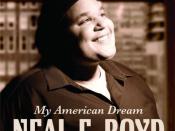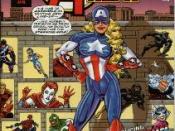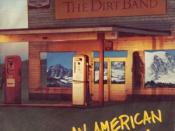A "tragic hero," according to Aristotle, must evoke emotions from the audience, must recognize his faults at the end of the novel, and must be large enough to be appropriate for tragedy. Northrop Frye refers to these requirements when he says, "Tragic heroes are so much the highest points in their human landscape that they seem the inevitable conductors of the power about them, great trees more likely to be struck by lightning than a clump of grass. Conductors may of course be instruments as well as victims of the divine lightening." He understands that a tragic hero, like Willy Loman in Death of a Salesman, by Arthur Miller, is more likely to be brought down than a common man because of his tragic flaw and that such a downfall will destroy himself as well as others around him.
Willy's reluctance to accept the fact that he can't achieve the "American dream" locks him into a world of lies, delusions, and self-denial.
According to Fuller, he "is...a self-deluded man who has lost the power to distinguish between reality and the obsessions that come to dominate his life." His American dream consists of easy success and money. It is very important that he be "well liked" and uses this to measure other people's status and their success in life. For example, in the beginning of Act Two he describes that he is going to form his own business that will be "...bigger than Uncle Charley! Because Charley is...not - well liked." He has an inflated sense of pride and is more concerned with appearances than principles. His inability to face the actualities of his life causes him slowly to lose his grip on reality. At times he realizes that he has not succeeded as a salesman, but is unable to place...


